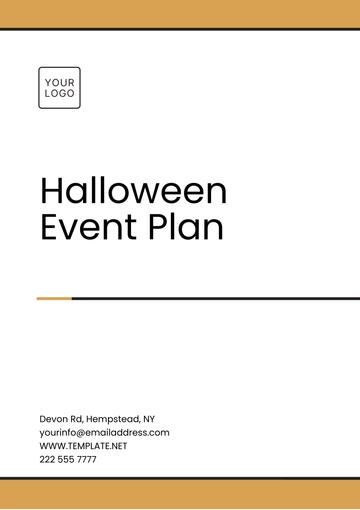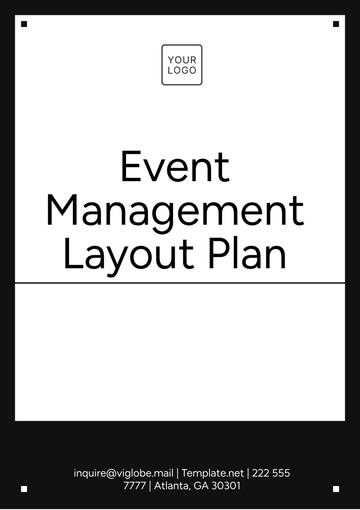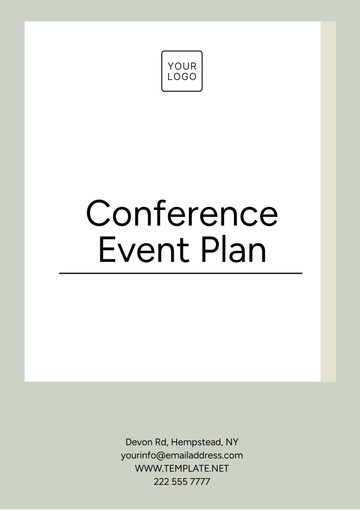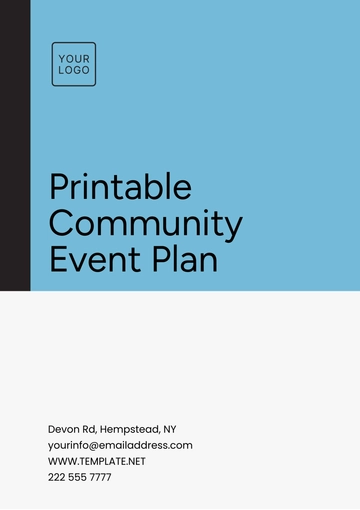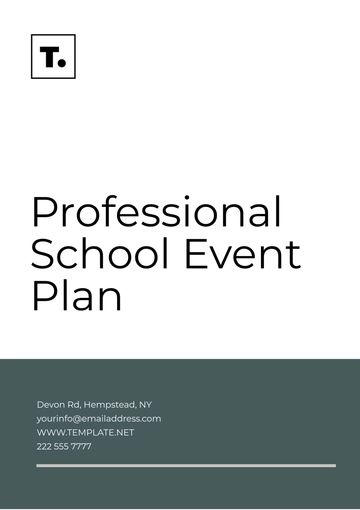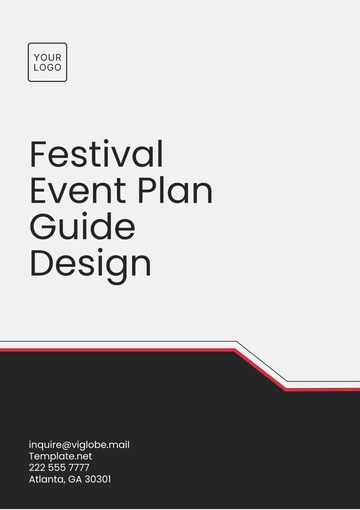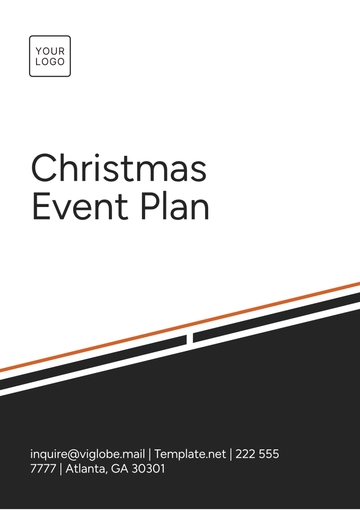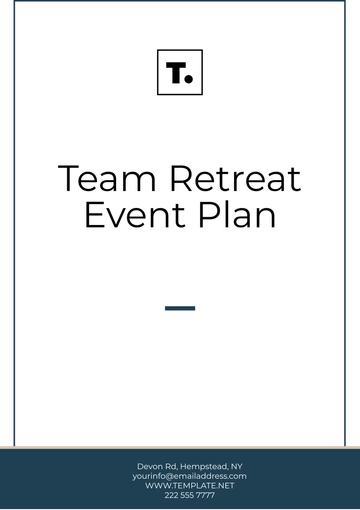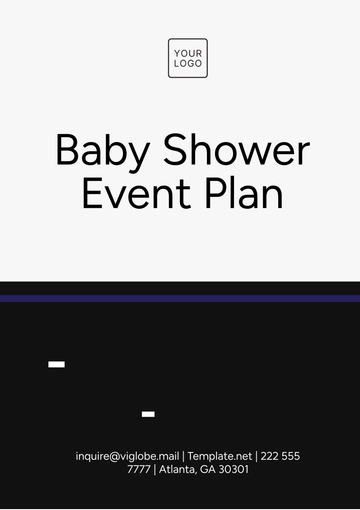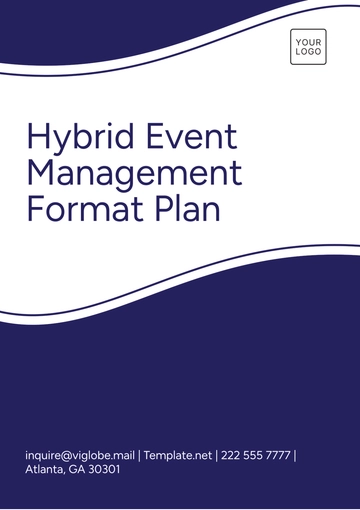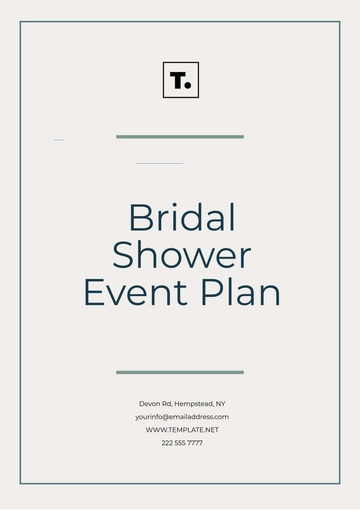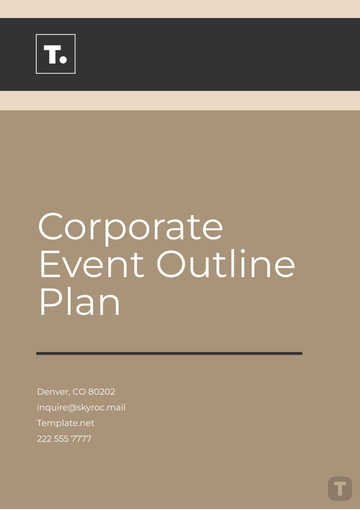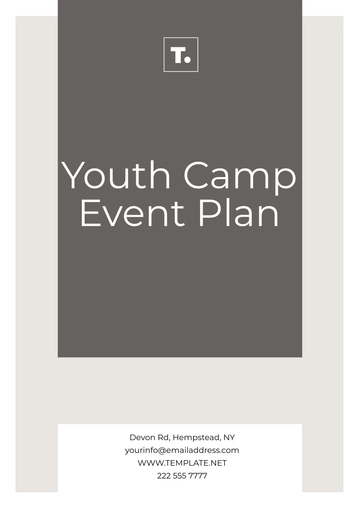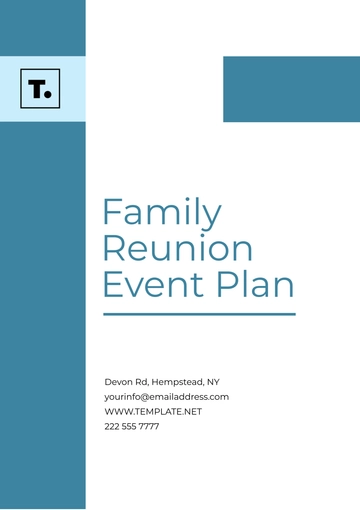Free Wedding Event Plan

I. Introduction
This comprehensive wedding event plan is designed to ensure that every aspect of your special day is meticulously organized and executed seamlessly. This plan provides clear instructions, timelines, and resources to guide you through the entire process, helping you create the wedding of your dreams.
II. Planning and Preparation
A. Budgeting
The first and most crucial step in planning your wedding is setting a realistic budget. Consider all potential expenses to avoid surprises down the line. Here are the key categories to include:
Venue Fees: Consider rental costs, deposits, and additional overtime charges.
Catering Costs: Include per-person pricing, bar services, and cake expenses.
Attire Expenses: Account for wedding dresses, suits, alterations, and accessories.
Decorations and Florals: Budget for bouquets, centerpieces, and overall venue decor.
Photography and Videography: Factor in the cost of hiring professionals and any packages that include albums or additional services.
B. Selecting the Date and Venue
Choose a date and venue that aligns with your vision and can accommodate your guest list. Consider the following:
Availability: Confirm the availability of your preferred dates well in advance.
Venue Style: Ensure the venue fits your theme, whether it’s a garden, beach, or traditional hall.
Guest Capacity: Verify that the venue can comfortably host your expected number of guests.
C. Guest List Preparation
Compile a comprehensive guest list early in the planning process. This includes:
Categories: Think about sorting the guests into groups like family, and friends, and work for smoother organization.
RSVP Tracking: Create a method for tracking RSVPs to manage seating and catering requirements.
Invitation Timeline: Set a timeline for sending invitations to ensure guests have ample notice.
III. Vendor Coordination
A. Catering
Select a reputable caterer who can provide quality and diverse menu options. Consider the following:
Menu Tasting: Schedule a tasting session to finalize your menu.
Dietary Restrictions: Make sure there are choices for guests with dietary needs, such as vegetarian or gluten-free options.
Service Style: Select the service style that best suits your event, whether it's plated, buffet, or family-style.
B. Photography and Videography
Hiring a professional photographer and videographer ensures your special moments are beautifully captured. Discuss the following:
Style Preferences: Discuss your favorite photography styles, such as candid or traditional, and share examples of work that you find inspiring.
Shot Lists: Create a list of must-have shots to ensure important moments are not missed.
Timeline Coordination: Ensure your photographer and videographer are aware of the wedding day timeline.
C. Entertainment
Book entertainment that suits your theme and preferences. Consider these aspects:
Type of Entertainment: Choose between a live band, DJ, or other entertainment options like a string quartet.
Music Selection: Discuss your favorite songs and must-play lists with your entertainment vendor.
Setup Requirements: Confirm the setup requirements and timing with your vendors to avoid last-minute issues.
IV. Legal Considerations
A. Marriage License
Research the requirements for obtaining a marriage license in your area. Consider:
Application Process: Understand the application procedure, fees, and waiting periods.
Documentation: Collect all required documents, such as identification and proof of residency, ahead of time.
Deadline: Ensure the license is obtained within the required time frame before the wedding date.
V. Wedding Day Coordination
A. Wedding Day Timeline
Create a detailed timeline to manage the sequence of events seamlessly, from preparation to the end of the celebration. A sample timeline may include:
Time | Event |
|---|---|
9:00 AM | Hair and Makeup |
11:00 AM | Bride and Groom Photos |
1:00 PM | Ceremony Start |
2:00 PM | Cocktail Hour |
3:00 PM | Reception Begins |
7:00 PM | Cake Cutting |
8:00 PM | First Dance |
10:00 PM | Send-Off |
B. Emergency Kit
Prepare an emergency kit with essentials to address unforeseen situations. Include:
Sewing Kit: For any wardrobe malfunctions.
First Aid Supplies: Basic first aid items for minor injuries.
Personal Care Items: Items like deodorant, hairspray, and makeup for quick touch-ups.
Emergency Contact List: Include vendor contacts and a point person for day-of coordination.
VI. Post-Wedding Considerations
A. Thank You Notes
Plan to send thank you notes to guests and vendors to express your appreciation. Consider the following:
Personalization: Make each note personal by mentioning the gift or gesture received.
Timeline: Aim to send thank you notes within three months post-wedding.
B. Address Legal Documentation
Ensure you update all legal documents to reflect any changes in name or address following the wedding. This may include:
Social Security: Update your Social Security card if changing your name.
Bank Accounts: Update banking and credit card information.
Identification: Ensure your driver’s license and passport are updated with your new name.
VII. Conclusion
With careful planning and organization using this guide, your wedding is set to be a memorable event that runs smoothly and joyfully. Remember to embrace the process and enjoy each moment leading up to your special day!
- 100% Customizable, free editor
- Access 1 Million+ Templates, photo’s & graphics
- Download or share as a template
- Click and replace photos, graphics, text, backgrounds
- Resize, crop, AI write & more
- Access advanced editor
Plan your perfect wedding with ease using Template.net's Wedding Event Plan Template. This fully customizable and editable template lets you organize every detail effortlessly. Editable in our AI Editor Tool, it allows you to personalize the design and content to fit your unique style and preferences, ensuring your special day is flawlessly executed.
You may also like
- Finance Plan
- Construction Plan
- Sales Plan
- Development Plan
- Career Plan
- Budget Plan
- HR Plan
- Education Plan
- Transition Plan
- Work Plan
- Training Plan
- Communication Plan
- Operation Plan
- Health And Safety Plan
- Strategy Plan
- Professional Development Plan
- Advertising Plan
- Risk Management Plan
- Restaurant Plan
- School Plan
- Nursing Home Patient Care Plan
- Nursing Care Plan
- Plan Event
- Startup Plan
- Social Media Plan
- Staffing Plan
- Annual Plan
- Content Plan
- Payment Plan
- Implementation Plan
- Hotel Plan
- Workout Plan
- Accounting Plan
- Campaign Plan
- Essay Plan
- 30 60 90 Day Plan
- Research Plan
- Recruitment Plan
- 90 Day Plan
- Quarterly Plan
- Emergency Plan
- 5 Year Plan
- Gym Plan
- Personal Plan
- IT and Software Plan
- Treatment Plan
- Real Estate Plan
- Law Firm Plan
- Healthcare Plan
- Improvement Plan
- Media Plan
- 5 Year Business Plan
- Learning Plan
- Marketing Campaign Plan
- Travel Agency Plan
- Cleaning Services Plan
- Interior Design Plan
- Performance Plan
- PR Plan
- Birth Plan
- Life Plan
- SEO Plan
- Disaster Recovery Plan
- Continuity Plan
- Launch Plan
- Legal Plan
- Behavior Plan
- Performance Improvement Plan
- Salon Plan
- Security Plan
- Security Management Plan
- Employee Development Plan
- Quality Plan
- Service Improvement Plan
- Growth Plan
- Incident Response Plan
- Basketball Plan
- Emergency Action Plan
- Product Launch Plan
- Spa Plan
- Employee Training Plan
- Data Analysis Plan
- Employee Action Plan
- Territory Plan
- Audit Plan
- Classroom Plan
- Activity Plan
- Parenting Plan
- Care Plan
- Project Execution Plan
- Exercise Plan
- Internship Plan
- Software Development Plan
- Continuous Improvement Plan
- Leave Plan
- 90 Day Sales Plan
- Advertising Agency Plan
- Employee Transition Plan
- Smart Action Plan
- Workplace Safety Plan
- Behavior Change Plan
- Contingency Plan
- Continuity of Operations Plan
- Health Plan
- Quality Control Plan
- Self Plan
- Sports Development Plan
- Change Management Plan
- Ecommerce Plan
- Personal Financial Plan
- Process Improvement Plan
- 30-60-90 Day Sales Plan
- Crisis Management Plan
- Engagement Plan
- Execution Plan
- Pandemic Plan
- Quality Assurance Plan
- Service Continuity Plan
- Agile Project Plan
- Fundraising Plan
- Job Transition Plan
- Asset Maintenance Plan
- Maintenance Plan
- Software Test Plan
- Staff Training and Development Plan
- 3 Year Plan
- Brand Activation Plan
- Release Plan
- Resource Plan
- Risk Mitigation Plan
- Teacher Plan
- 30 60 90 Day Plan for New Manager
- Food Safety Plan
- Food Truck Plan
- Hiring Plan
- Quality Management Plan
- Wellness Plan
- Behavior Intervention Plan
- Bonus Plan
- Investment Plan
- Maternity Leave Plan
- Pandemic Response Plan
- Succession Planning
- Coaching Plan
- Configuration Management Plan
- Remote Work Plan
- Self Care Plan
- Teaching Plan
- 100-Day Plan
- HACCP Plan
- Student Plan
- Sustainability Plan
- 30 60 90 Day Plan for Interview
- Access Plan
- Site Specific Safety Plan

